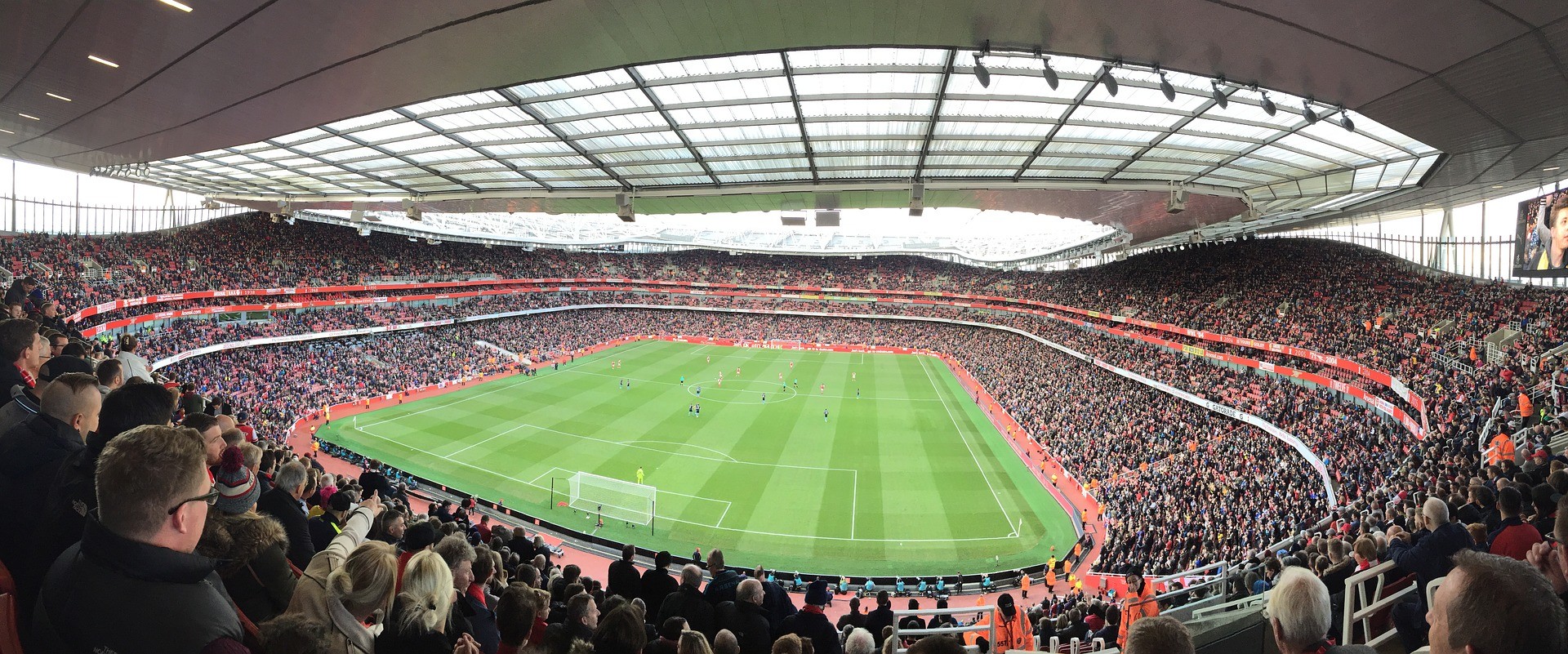THE BUSINESS SITUATION
In today’s world, football is way more than the 90 minutes on the grass. In order to brand themselves outside of the stadium and cater to a worldwide audience, many football clubs have established their own media outlets. Arsenal Football Club is a leading example of this trend. Game highlights alone are not enough to satisfy the voracious appetites of their fan base.
Arsenal produces the majority of its content in-house. This includes full coverage of each match day, home and away, a weekly 30-minute behind-the-scenes documentary, a 30-minute breakdown from the previous game, along with stories from the training ground. Combine these with interviews, live press conferences and more, resulting in a huge amount of content to be generated on a regular basis and for different outlets like social media, which favour a higher frequency of shorter clips.
So, with multiple matches per week and daily content to release, efficient digital workflows are key. For these reasons, Arsenal Football Club adopted Projective STRAWBERRY as Production Asset Management tool (PAM). With STRAWBERRY they were able to increase the productivity of their creative staff and gain control over the avalanche of incoming raw footage and produced content.
THE CHALLENGE
Before deciding to implement Strawberry, Arsenal Football Club worked with a typical Media Asset Management (MAM) system that required a lot of maintenance from a logging and archiving perspective. This created additional time-consuming work for editors at the end of each season and didn’t address the storage management issues they had.
"Switching systems, in our case, from a MAM to a PAM system during on-going production process can be a scary thing to do”, says John Dollin, senior systems and operations manager at Arsenal Football Club. But the organization of the production storage was very basic and folder based that we knew we had to do something to help our editorial team find their content quicker and work more efficiently."
John Dollin, senior systems and operations manager at Arsenal Football Club
THE SOLUTION
Before the implementation of STRAWBERRY, it was difficult to understand where assets were being stored and how the assets were being shared between projects, meaning editors would sometimes copy content locally—creating duplication and a management headache of trying to determine what could be deleted or archived.
With STRAWBERRY’s Project Mount technology, assets and projects can now be shared between editors, reducing duplication and making workspaces on the storage system easy to manage. Because STRAWBERRY organizes the production storage automatically, Archive/Restore and Deletion become much easier; helping to rein in waste on the storage.
"To give you an idea of the scale, the 1st tier storage capacity at Arsenal is ~400 Terabytes, with a ~100 Terabytes 2nd tier and an LTO7 archive. We can burn through well over five Terabytes per month,” explains John Dollin.
The previous MAM system forced editors to tag assets individually, which they never had time to do, so students were hired to take over the tagging jobs. With STRAWBERRY logged interview content is automatically searchable and project-based metadata ensures that assets can be found based on their project context.
STRAWBERRY runs on a simple Linux server and mounts the storage as a root device to the control access. Content is organized automatically on the central storage on a project basis. Strawberry creates proxy previews of content that it is managing, which allows editors to mouse-over the footage to find specific sequences, which makes it much easier for the production team to quickly find the footage they want. Also, since these proxies are just for previewing, this “neutralizes” the problem of different codecs coming from the various camera types.
"But the real magic is Strawberry’s tight integration with Adobe® Premiere Pro® and its XMP metadata file formatting, making text written by the journalist and imported into Premiere become immediately searchable”, mentions Dollin. In addition, the Opta stats that we are receiving get automatically indexed and are searchable in the STRAWBERRY database. Considering that in the past most tagging was done by students that we hired, this workflow is now much less prone to human error, much faster and more efficient, saving us time and money. Not to forget, with this new workflow, edited content can be reviewed and approved from a simple web browser inside or outside of the facility. This is another big time-saver for us, especially when the team is on tour,” Dollin adds.
ARCHIVAL AND RETRIEVAL MADE EASY
Strawberry provides a framework for Arsenal Football Club to produce their content more effectively. Less waste on the storage, less time on tagging and searching for content, more time to be creative and focus on production. STRAWBERRY’s seamless integration with the Adobe tools ensures that the solution works for the creative team, putting advanced search and viewing tools at their fingertips, automating project and workspace management.
"In the end, switching to Strawberry has added so much value to our production workflow, that is was worth going through the hassle of switching systems. Our editorial team is a much happier bunch that can now focus on their creative work rather than dealing with storage and archiving issues,” John Dollin concludes.
© 2023 Projective. All rights reserved. Projective and Strawberry software are trademarks of Projective. Arsenal Broadband Ltd. Is a registered trademark of Arsenal London Football Club PLC. Adobe and Adobe Premiere Pro are registered trademarks of Adobe Systems Inc. All other trademarks are the property of their respective owners. Product features, specifications, system requirements and availability are subject to change without notice.
